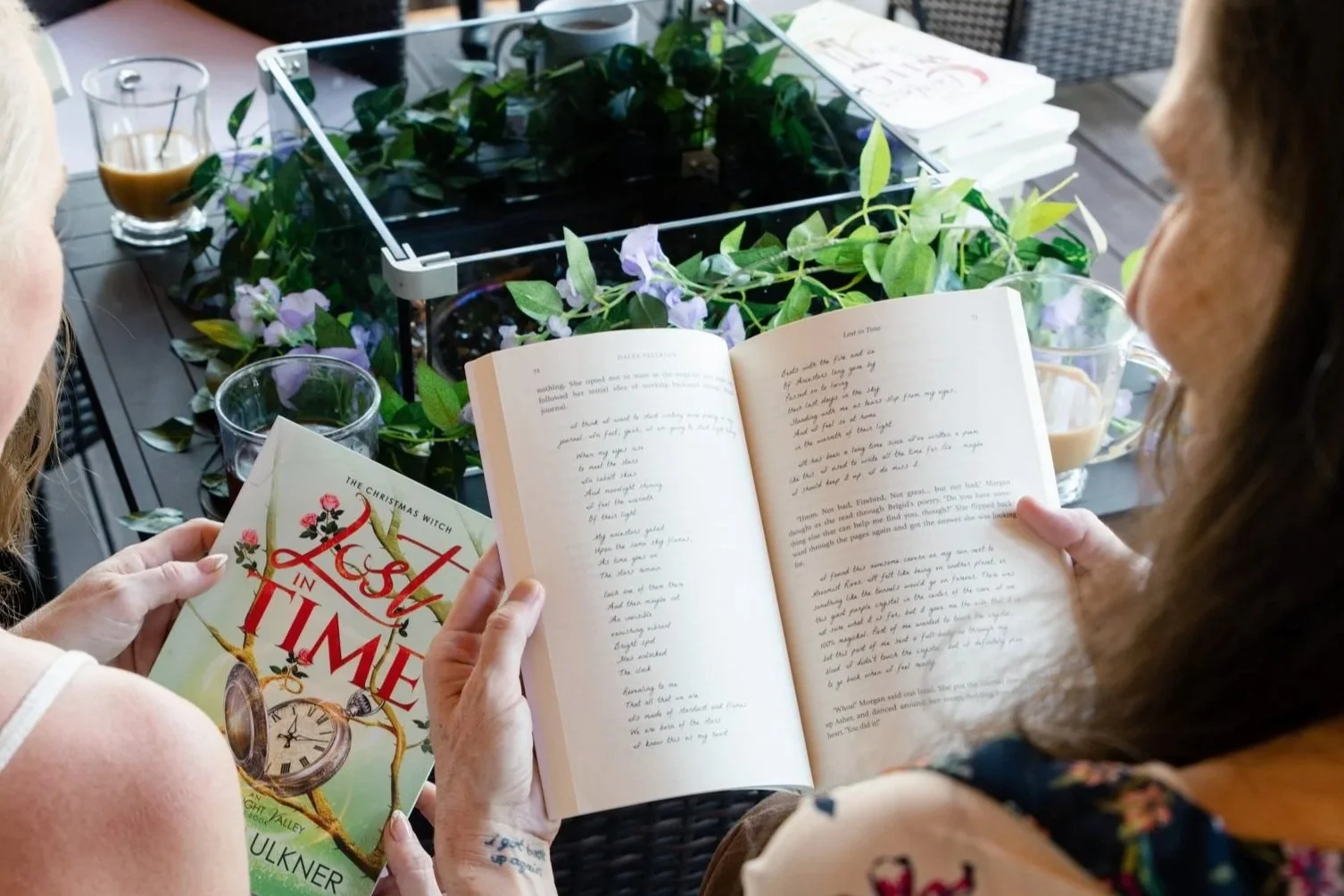Why Every Writer Needs a Supportive Community
I used to think writing was supposed to be a solitary act — just me, my notebook, and maybe a cup of tea. And while there is magic in those quiet, tucked-away moments, I’ve learned something I wish I’d known years ago: stories grow stronger when they’re held in community.
Whether it’s through a one-on-one brainstorming session with a trusted author friend, a late-night chat about plot holes, or connecting with readers at a book festival, I’ve discovered that building a writing community is less about selling books and more about finding your people.
The Importance of a Writing Community
Writing is vulnerable work. It asks us to bring our hearts to the page — and that can feel overwhelming without a safe space to land.
A supportive community gives us:
Encouragement when self-doubt gets too loud.
Feedback that sharpens our voice without dulling our magic.
Collaborators who make the journey less lonely.
At book events, I’ve noticed it isn’t always about the number of sales at the end of the day. Sometimes the most important thing is the one connection you make — the person who believes in your work, shares your vision, or invites you into a project you hadn’t even imagined.
Finding Like-Minded Writers
For me, connection works best in smaller doses. Big groups overwhelm me, but give me one thoughtful, creative conversation over coffee and I’m lit up for days.
Some ways I’ve found (and recommend for others):
Local events: Book festivals, book signings, or writing workshops often lead to serendipitous connections.
Online spaces: Forums, Facebook groups, or Instagram communities where writers gather. (Bonus: you get to filter for those who share your values and goals.)
Direct reach-outs: Sometimes it’s as simple as sending a message to a writer you admire and asking if they’d like to swap ideas.
Tip: Look for people whose values align with yours, not just their genre. Shared heart beats genre every time.
The Role of Feedback and Criticism
One of the hardest parts of writing is letting other people read your work. But it’s also the most transformative.
The right community won’t just hand you a red pen… they’ll hold your story with care, help you see what you couldn’t on your own, and cheer you through the revisions.
And criticism? It can sting. But I’ve learned to reframe it as collaboration: an invitation to see my story in a new light, rather than proof that I failed.
Collaboration and Networking Opportunities
Some of the most magical moments in my career came not from sales, but from collaboration.
A casual conversation at a festival turned into a film extra signup. A connection with another author opened doors to cross-promotion. And sometimes, it’s simply about knowing you’re not walking this road alone.
That’s one of the reasons I created The Author Toolkit — to offer free resources that help writers build both the practical side of their career and the community that sustains it.
Keeping Motivation High Through Community Support
Writing can be isolating — but it doesn’t have to be. Community keeps the fire lit when we’re tempted to let it go out.
There have been days when I was certain I had nothing left to give the page. And then a friend would send a message, ask me about my characters, or remind me why I started. Those little nudges have pulled me through countless blocks.
Because writing isn’t just about the words… it’s about the people we connect with through them.
Closing Thought
If you’ve been feeling stuck, invisible, or unsure of your next step, maybe what you need isn’t just a new draft, maybe you need a community to remind you of your brilliance.
Start small. Reach out to one writer. Download a tool that helps you feel less alone. Or simply show up at your next local event, not to sell, but to connect.
Because every story is stronger when it’s not written in isolation.
With ink and encouragement,
Dalea
🕯️ Wander into Amberlight and beyond—sign up for updates, secrets, and the occasional enchanted surprise.



